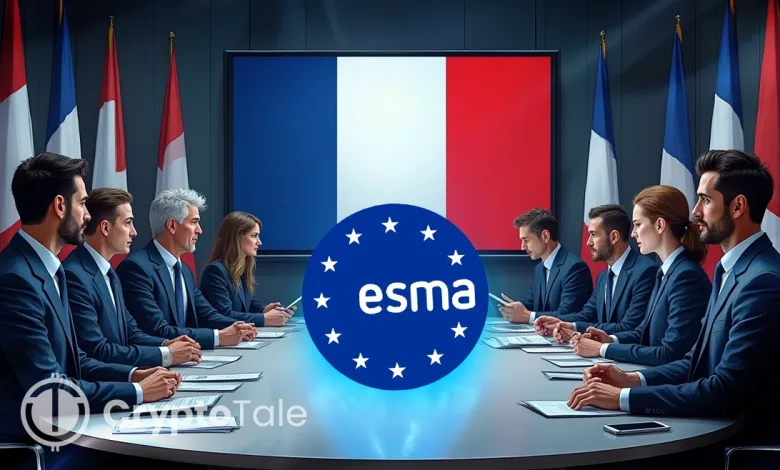France, Italy Push for ESMA Control, Malta Opposes Changes

- France, Italy, and Austria urge ESMA to centralize crypto oversight and close regulatory gaps.
- MiCA’s passporting system faces criticism for allowing firms to exploit lenient regulations.
- Malta warns against ESMA’s control as it could cause inefficiency and stifle innovation.
Europe faces a growing divide on crypto oversight as France, Italy, and Austria call for stronger ESMA control. The concerns raised due to the exploitation of firms over regulations to bypass stricter rules, while Malta resists centralization, citing inefficiency and hindrance to innovation.
Founded in 2011, the European Securities and Markets Authority (ESMA) is an independent EU agency, brought in to improve investor protection and promote a stable financial market. With the clash between the nations, market observers hint at a potential shift in crypto licensing authority.
MiCA’s passporting system allows crypto firms licensed in one EU country to operate in all its other 27 member states without additional approval. Initially designed to streamline operations across Europe, it now faces criticism. Some argue that the system enables firms to exploit weaker regulations in countries like Malta, bypassing more stringent rules in nations like France. In response, France’s securities regulator, AMF, has warned it may block such firms from operation, challenging the system’s effectiveness.
ESMA Control Closing Loopholes and Maintaining National Flexibility
By placing regulations with ESMA, countries like France, Italy, and Austria pointed out taht it could close regulatory loopholes. They are concerned that passporting may form a disjointed market where companies would rush to more tax jurisdictions.
To them, a more impactful ESMA would lead to a steady implementation of MiCA. This move, however, according to critics, puts too much power in the hands of national regulators, which might not be in the best interests of the market.
Legal experts remain divided on whether centralization aligns with MiCA’s objectives, while supporters argue that expanding ESMA’s role could prevent regulatory arbitrage. Others, such as Edwin Mata, CEO of Brickken, threaten that such a change would negate the desire of MiCA to enable companies to roam freely in the EU. Concerns exist that it could lead to inconsistent application and hinder market expansion in certain areas.
Related: Bitvavo Gets MiCA License to Offer Crypto Across Europe
Malta’s Pushback on Centralized Crypto Oversight
According to the Malta Financial Services Authority (MFSA), making ESMA more powerful may lead to bureaucratic inefficiencies, and it opines that national regulators ought to remain authorized to be more responsive to local demands. Although Malta advocates alignment with EU regulators, it warns that it is necessary to prevent mandatory flexibility in crypto regulation.
In July, ESMA expressed concern over the licensing process in Malta following a peer review of the MFSA. Although ESMA recognized the scale and experience of staff in Malta, it identified that the country underperformed regarding its approach to crypto asset service providers (CASPs).
The review, which took place in April 2025 by the Peer Review Committee, advised all National Competent Authorities (NCAs) to enhance their regulatory frameworks and called upon the MFSA to improve consistency within the EU.
Moreover, the nations claimed that a tighter ESMA is necessary to provide enhanced consistency, whilst Malta cautions that it might promote inefficiency. They both equate that MiCA needs to be enforced effectively, but they differ on the ideal method.
The outcome of this dispute could shape the future of crypto regulation in the EU. If ESMA is given more authority, it could give a more stable regulatory condition, yet it would come at the expense of national flexibility.
Conversely, when the national regulators retain the reign, the probability of discontinuity would still be there. The MiCA enforcement dilemma would tell whether the EU could develop a unified market or if national interests would still trouble the sector.




